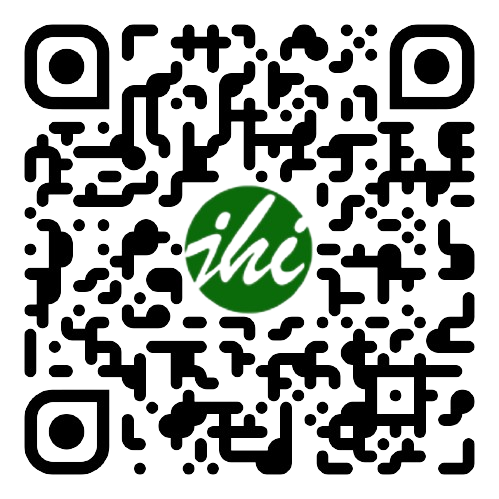The ‘afw Principle and The Indonesian Restorative Justice System
DOI:
https://doi.org/10.28918/jhi.v19i2.4726Keywords:
Afw Principle, Criminal, Restorative JusticeAbstract
This paper explains the implementation of the ‘afw principle, a forgiveness principle known in Islamic criminal law, as an objective of Restorative Justice. Although the restorative justice has not been regulated in specific and comprehensive legislation in Indonesia, the restorative justice is currently regulated in at least three different institutional regulations, including the Circular Letter of the Chief of the Indonesian Police Number SE/8/VII/2018 (SE Kapolri), the Regulation of Indonesian Attorney Number 15 of 2020 (Perja), and the Decree of the Director General of the General Judiciary Body Number 1691/DJU/SK/PS.00/12/2020 (SK Dirjen Badilum). The three regulations provide a broad and slightly different explanation of how restorative justice objective is, which is likely to be interpreted in different means. However, the three institutional regulations have a similar approach to reconcile the victim and the perpetrator. The reconciliation seems to be a predominant restorative justice objective to enforce a criminal offence in Indonesia. This research uses a doctrinal methodology by analysing primary data sources, such as Indonesian legislation and Islamic sources of law, and secondary sources from relevant literature. The result indicates that there has not been comprehensive Indonesian legislation on restorative justice, particularly in terms of the objective. Incorporating the ‘afw principle as a restorative justice objective will provide more sense of justice for the victim and the alleged offender.
References
Al-Amin M. (2001). Tafsir Hadaiq ar-Rauh wa ar-Raihan. an-Najah.
Ali Tajuddin, H. H., Hussin, N., & Zawawi, M. (n.d.). Restorative justice in Islamic law: application in Malaysian legal history and the criminal justice system. In Research Handbook on Islamic Law and Society (pp. 250–270). Edward Elgar Publishing. https://doi.org/10.4337/9781781003060.00019
Ash-Shabuni, M. A. (1980). Tafsir Ayat Al-Ahkam. Maktabah al-Ghazali.
Borton, I. M. (2009). Effects of Race, Sex, and Victims’ Reasons for Victim-Offender Dialogue. Conflict Resolution Quarterly. https://doi.org/https://doi.org/10.1002/crq.256
Brooks, T. (2017). Punitive Restoration and Restorative Justice. Criminal Justice Ethics. https://doi.org/https://doi.org/10.1080/0731129X.2017.1358930
Cornwell, D. J. (2007). Doing Justice Better: the Politics of Restorative Justice. Waterside Press.
Dobinson, I., & Johns, F. (2007). Qualitative Legal Research (M. McConville & W. H. Chui (Eds.) (Ed.)). Edinburgh University Press.
Friedman, L. M. (1975). The Legal System: A Social Science Perspective. Russell Sage Foundation.
Gardner, M., & Weber, M. (Eds.). (2018). The Ethics of Policing and Imprisonment. Springer International Publishing. https://doi.org/10.1007/978-3-319-97770-6
Hardjaloka, L. (2015). Criminal Justice System of Children: an Overview Restorative Justice Concept in Indonesia and Other Countries. Journal of Dinamika Hukum, 15(1), 73–81. http://dinamikahukum.fh.unsoed.ac.id/index.php/JDH/article/view/365/359
Kamali, M. H. (2019). Crime and Punishment in Islamic Law. Oxford University Press.
Katsir, I. (1999). Tafsir Al-Quran Al-’Azhim. Dar Thayyibah li An-Nasyri wa At-Tawzi’.
Mahendra, A. P. (2020). Mediasi Penal Pada Tahap Penyidikan Berlandaskan Keadilan Restoratif. Jurist-Diction, 3(4), 1153. https://doi.org/10.20473/jd.v3i4.20200
Mardani. (2019). Hukum Pidana Islam. Kencana.
Marsaid. (2020). Al-Fiqh Al-Jinayah (Hukum Pidana Islam). Rafah Press.
Peterson Armour, M., & Umbreit, M. S. (2006). Victim Forgiveness in Restorative Justice Dialogue. Victims and Offenders. zhttps://doi.org/https://doi.org/10.1080/15564880600626080
Petrucci, C. J. (2002). Apology in the Criminal Justice Setting: Evidence for Including Apology as an Additional Component in the Legal System. Behavioral Sciences and the Law. https://doi.org/https://doi.org/10.1002/bsl.495
Praja, J. S. (1995). Filsafat Hukum Islam. LPPM Universitas Islam Bandung.
Ropei, A. (2020). The Resolution Of Criminal Cases through A Restorative Justice Approach in Islamic Law Perspective. Jurnal Hukum Islam, 18(2).
Sabiq, S. (1995). Fiqh Sunnah. PT. Al-Ma’arif.
Santoso, T. (2016). Asas-Asas Hukum Pidana Islam. Rajawali Pers.
Shapland, J. (2016). Forgiveness and Restorative Justice: Is It Necessary? Is It Helpful? Oxford Journal of Law and Religion, 5, 94–112.
Toews, B. (2016). Architecture and Restorative Justice. In T. Gavrielides (Ed.), International Handbook of Restorative Justice. Routledge.
Van Ness, D. W., & Strong, K. H. (2014). Restoring Justice: An Introduction to Restorative Justice. In Restoring Justice: An Introduction to Restorative Justice: Fifth Edition (Fifth). Anderson Publishing.
VAN STOKKOM, B. (2008). Forgiveness and Reconciliation in Restorative Justice Conferences. Ethical Perspectives, 15(3), 399–418. https://doi.org/10.2143/ep.15.3.2033158
Downloads
Published
How to Cite
Issue
Section
License
Copyright (c) 2021 Jurnal Hukum Islam

This work is licensed under a Creative Commons Attribution-NonCommercial 4.0 International License.
Jurnal Hukum Islam use a variety of waivers and licenses that are specifically designed for and appropriate for the treatment of data:
- Open Data Commons Attribution License, http://www.opendatacommons.org/licenses/by/1.0/(default)
- Creative Commons CC-Zero Waiver, http://creativecommons.org/publicdomain/zero/1.0/
- Open Data Commons Public Domain Dedication and License, http://www.opendatacommons.org/licenses/pddl/1-0/
Other data publishing licenses may be allowed as exceptions (subject to approval by the editor on a case-by-case basis) and should be justified with a written statement from the author, which will be published with the article.













.png)














